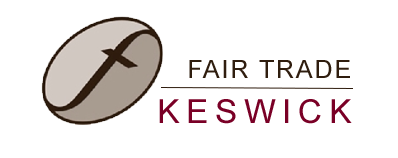About
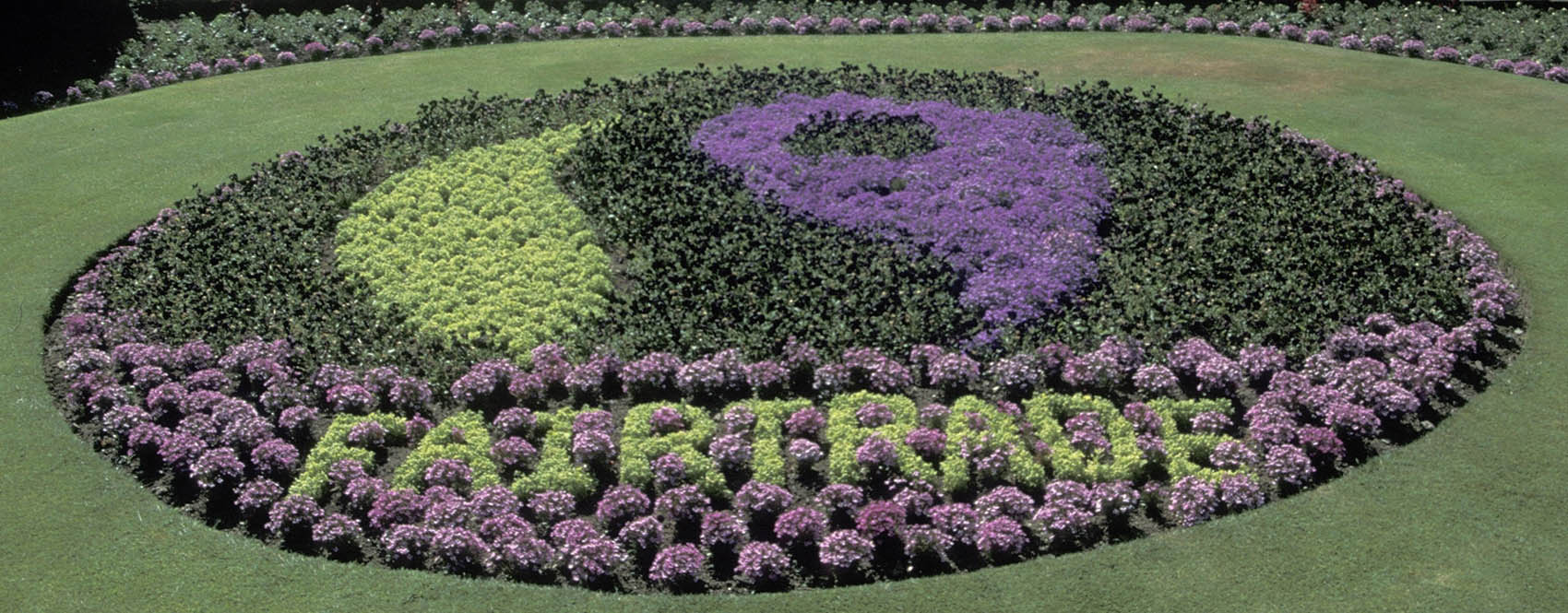
Keswick and District Fair Trade Campaign has been promoting Fairtrade and other fairly traded products since 2003 through a wide variety of activities and special events (see images), notably in Fairtrade Fortnight. Our community was awarded Fairtrade Town status by the Fairtrade Foundation in March 2005. We are now one of over 600 Fairtrade Towns nationally and over 1800 globally (see the international Fairtrade Towns website). We do not work alone. Our many allies and partner organisations are listed below.
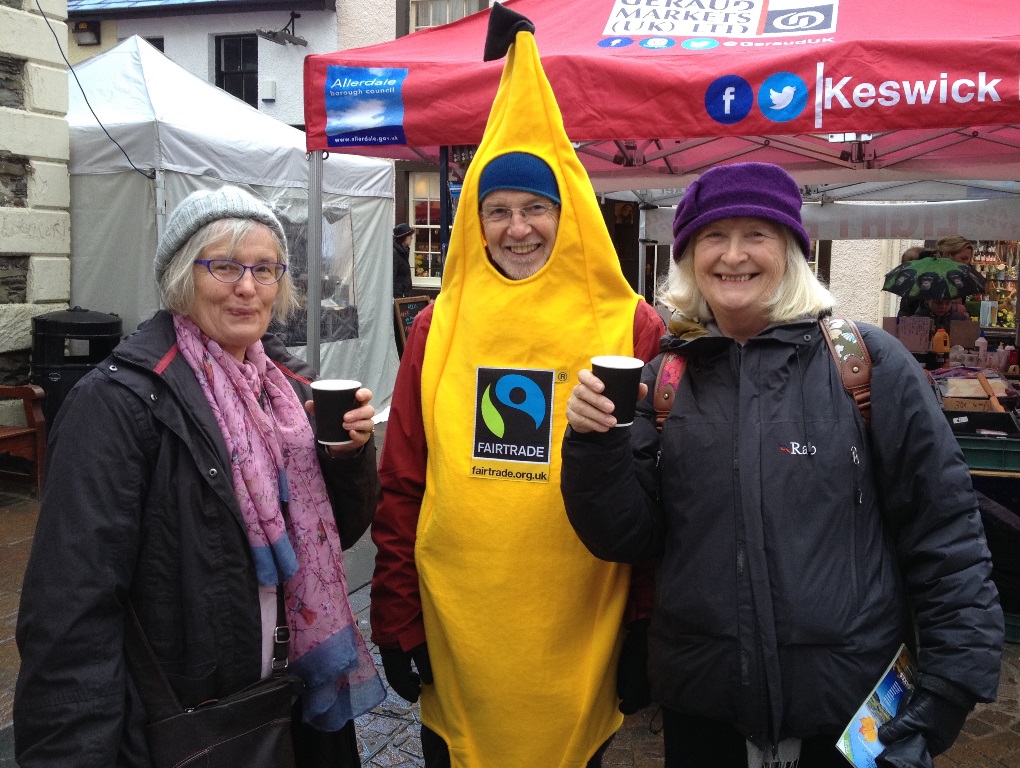
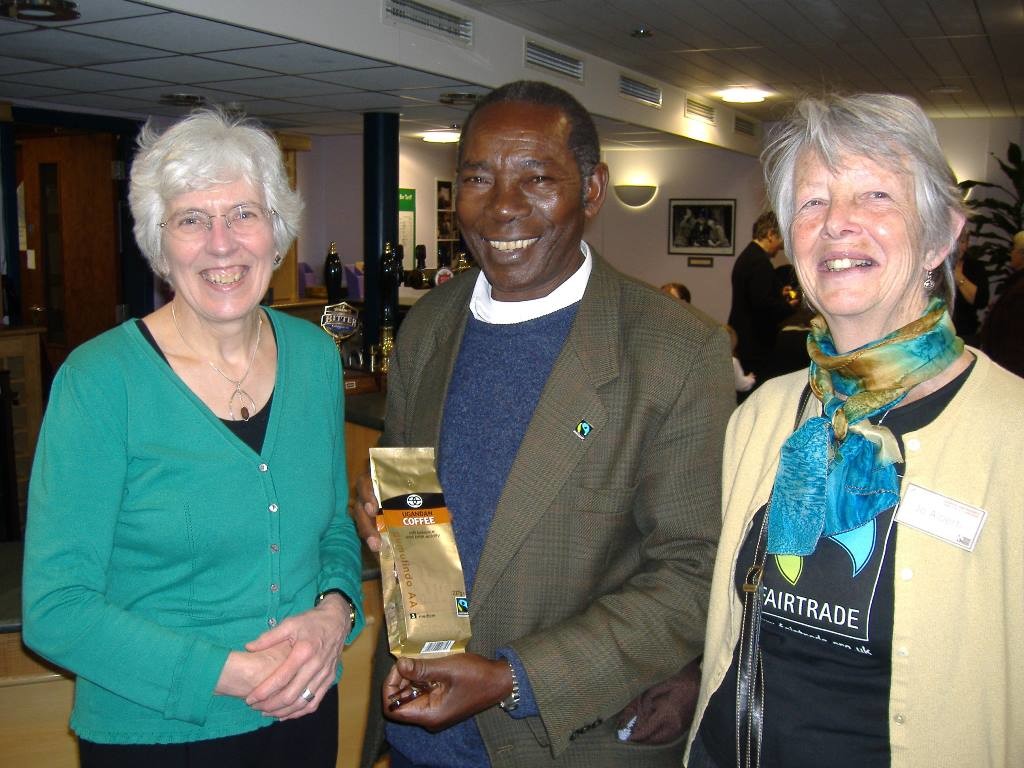
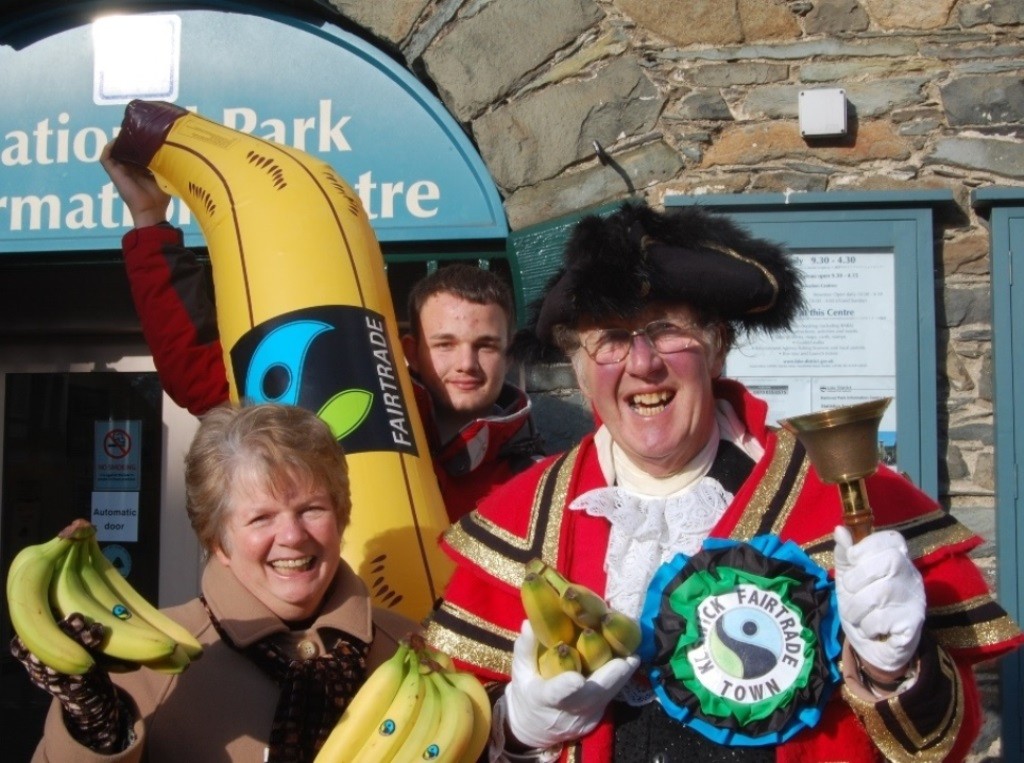
Allies and partners
-
Keswick Tourism Association
We have worked successfully with Keswick Tourism Association, of which we are a member, to promote Fairtrade within the local tourism sector.
-
Fairtrade Certified Coffee Farming Cooperative of Choche
Since 2006 we have had a friendship link with the Fairtrade certified coffee farming cooperative of Choche in Ethiopia which we used to regularly visit (see Photo Gallery). The project is now completed, but the benefits to the local community continue, with Rotary support.
-
Cumbria Fair Trade Network
We are a founder member of https://cumbriafairtrade.wixsite.com/cftn an alliance of 16 Fairtrade groups around the county which meets regularly for sharing and learning.
-
Rotary Club of Keswick
Since 2010 we have worked closely with the Rotary Club of Keswick which has provided generous funding for two micro-loan projects in Choche, to both of which we have contributed. The most recent of these is the Million Birr Project. Keswick & District Fairtrade Campaign contribution has now come to an end but the benefits to the community remain.
-
Lake District National Park Fairtrade Zone
We are a part of the Lake District National Park Fairtrade Zone, the first national park in the world to become thus recognised.
-
Fairtrade Foundation
We support the work of the Fairtrade Foundation.
-
Shared Interest
We contribute to the work of Shared Interest in helping both businesses and producers sell more products on Fairtrade terms.
-
Fair Trade Way
Keswick is on the Fair Trade Way, a long distance footpath from Garstang, the world’s first Fairtrade Town in Lancashire, to Carlisle.
-
Trade Justice Movement
Trade Justice provides the broader context of our Fairtrade campaigning. And we use the Trade Justice Movement for information and suggestions for action.
Other Useful Information
Shopping for local produce
We also encourage people to buy local – milk, meat, fruit and vegetables – as much as possible, because we know that Cumbrian farmers and food producers face many challenges. These include: poor milk prices; increasing costs of farming inputs; increasing costs of distribution; reluctance of retailers to market local products; insufficient awareness by the public of local products and insufficient commitment to buy them, and inadequate commitment from the public sector to procure local products.
Many of these challenges, if not all, are faced by farmers in developing countries, and for a particular group, that is those who sell their produce – their bananas, coffee, sugar, cocoa, etc. – in our markets Fairtrade has offered long term, sustainable solutions.
Therefore, in addition to promoting Fairtrade and other fairly traded products from developing countries, we encourage people to buy local produce wherever and whenever they can, and, if they cannot buy Cumbrian, to buy north-western, and if that’s not possible, then to buy British.
So we say, ‘Put Cumbrian milk into your Fairtrade coffee!’ and ‘Buy Cumbrian cheese along with your Fairtrade wine!’
We don’t see a conflict between Fairtrade products and local. We do not grow coffee in Cumbria, nor tea, nor bananas, nor pineapples. The only major commodity over which there is competition is between British sugar (from beet) and tropical sugar (from cane).
In 2011, as a member of Cumbria Fair Trade Network, we were behind a major conference examining how the lessons of Fairtrade can be applied to ‘local’ produce. For more on this read conference report:
Cumbria_Local_&_Fair_Conference_Summary_Report_ja.jh_28.11.11
More recently, Cumbria Action For Sustainability (CAFS) are very active in promoting living with the lightest carbon footprint possible – see Living sustainably – CAfS
Resources – Zero Carbon Cumbria – Carbon reduction action across the county. work with CAFS & together are developing their local food project & networks.
Fairtrade or Fair Trade?
Fairtrade or Fair Trade (or fair trade or fairtrade or Fair trade or FairTrade) – it’s a mine-field! This page will help you to understand how these terms are used and often misused, sometimes deliberately.
The term Fairtrade is used to describe the certification and labelling system governed by Fairtrade International. The Fairtrade system allows consumers to identify goods that have met internationally agreed Fairtrade Standards by looking for the FAIRTRADE Mark1.
The term Fair Trade is used to refer to the Fair Trade movement as a whole and the organisations that abide to the high principles of Fair Trade. This includes both labelled and unlabelled goods, the work of Alternative Trade Organizations, Fair Trade federations and other networks. It is also used sometimes as an alternative term to Trade Justice.
The terms fair trade, fairtrade, Fair trade and FairTrade can mean whatever their users want them to mean, to imply that they are trading fairly, but not usually to any agreed internationally recognised standards. So always ask what they mean when you come across them. Likewise ethical.
If you need more read these:
More on local, national and international organisations
There is now a vast amount of resources and information on Fairtrade and Fair Trade. The best places to start are the Fairtrade Foundation, Fairtrade International, World Fair Trade Organisation and British Association of fair Trade Shops and Suppliers.
For teaching resources on Fairtrade Cumbria Development Education Centre has many excellent materials for loan and sale. They are also very helpful with advice
On Trade Justice there are many sites. The best one to start with is the Trade Justice Movement website, but all have useful information and are listed here:
- Christian Aid christianaid.org.uk
- Cumbria Fair Trade Network https://cumbriafairtrade.wixsite.com/cftn
- Fairtrade Foundation fairtrade.org.uk
- Global Justice Now globaljustice.org.uk
- Oxfam oxfam.org.uk
- Trade Justice Movement tradejusticemovement.org.uk
- World Trade Organization wto.org
For more local information go to https://cumbriafairtrade.wixsite.com/cftn but note that this is currently being updated.
